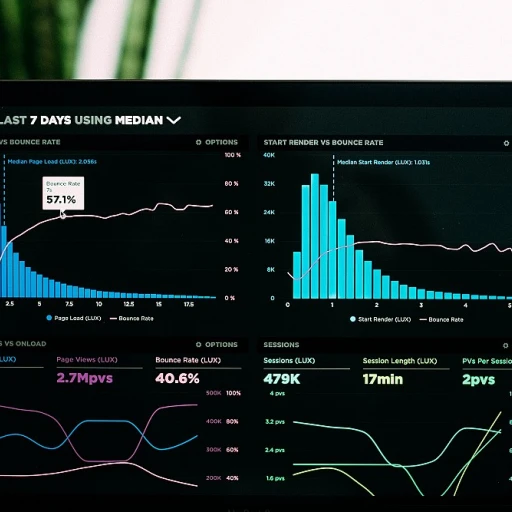Defining Private Assets in the Social Media Context
Exploring the Concept of Private Assets in Social Media
In the world of social media, the term private assets might not be immediately familiar to everyone, yet it plays a crucial role in the landscape of influence. Private assets, in this context, refer to the intangible and tangible resources that influencers leverage to build and maintain their online presence. These can include everything from proprietary content and personal brand equity to exclusive access to niche communities and networks.
Unlike public assets, which are widely accessible and often shared across platforms, private assets are unique to the influencer and are often cultivated over time. They form the backbone of an influencer's ability to engage with their audience and generate trust. As influencers invest in their personal brand, they create a portfolio of private assets that can yield significant returns in terms of engagement and monetization.
The importance of these assets becomes even more apparent when considering the dynamics of private markets versus public markets. In private markets, the focus is on long-term growth and stability, much like how influencers must nurture their private assets to ensure sustained influence and credibility. This approach mirrors strategies seen in private equity and venture capital, where the emphasis is on building value over time.
Understanding the intricacies of managing these assets is essential for influencers aiming to enhance their social media impact. As we delve deeper into this topic, we'll explore how these assets contribute to trust-building, audience engagement, and even monetization. For those interested in a broader perspective on how social media capital can be harnessed, this resource offers valuable insights.
The Role of Private Assets in Building Trust
The Connection between Private Assets and Trust
In the landscape of social media influence, trust is the currency that differentiates impactful influencers from those who fizzle out. As influencers strive to establish and maintain their credibility, private assets play a crucial role. Understanding the dynamics of how assets influence trust sheds light on the imperatives of influence in digital environments.
Private assets such as real estate, private equity, and venture capital often carry a perception of stability and longevity within the investing domain. This perception translates into the realm of influence, where authenticity and transparency are paramount. By showcasing their investments in reputable private assets, influencers can reinforce their statuses as reliable and knowledgeable entities within their niche.
Investors and audiences alike are drawn to individuals who demonstrate discernment in choosing their portfolios. Therefore, influencers who communicate their asset management strategies effectively position themselves as authorities. This approach not only enhances audience engagement but also solidifies a foundation of trust, harnessing the power of mastering the art of social media influence.
Moreover, the distinction between public and private markets is critical. Public assets are often associated with volatility, whereas private markets, such as private credit or alternative investments, provide a sense of security and expertise in long-term strategies. Leveraging these private aspects suggests a calculated, strategic approach to growth, which reassures audiences and retains their trust.
Leveraging Private Assets for Audience Engagement
Engaging with Your Audience Through Thoughtful Investment
Leveraging private assets allows influencers to create deep connections with their audience. By strategically sharing insights about their private investments, influencers can build a rapport that goes beyond surface-level interactions. This is not just about showcasing success but about educating and involving followers in your journey.
Take, for instance, the inclusion of diverse asset classes such as private equity and real estate in your investment discourse. Sharing information about your portfolio choices can provide followers with a new perspective on how they might consider alternative investments. Highlighting the differences between public and private market investments, and how each impacts risk and returns, offers valuable educational content that elevates your authority in the field.
Retail investors often look for credible insights when dabbling in private markets. Influencers can become vital resources in this regard, drawing upon their knowledge of asset management and private credit. By doing so, they not only enhance their credibility but also actively engage their audience by inviting them into the financial conversation.
Moreover, your approach to managing long-term investments and cash flows can be an engaging topic. This transparency in how you navigate private assets management could resonate well with an audience that's keen on understanding realistic investment strategies.
The key to successfully engaging your audience through private asset discourse is balancing transparency with expertise. Influencers who adeptly discuss topics such as venture capital, private debt, and the intricacies of private markets while aligning these with relatable stories and personal insights can develop a loyal following that values both their content and their investment acumen.
For a deeper understanding of how influencers and content creators utilize capital in their narratives, you can explore how influencers leverage capital to engage audiences further.
Monetizing Private Assets Effectively
Unlocking Revenue Streams Through Private Assets
Monetizing private assets involves tapping into multiple revenue streams to convert influence into tangible returns. For influencers, this means strategically leveraging their private equity and private credit portfolios to maximize cash flows. By diversifying into various asset classes such as private real estate, venture capital, and alternative investments, influencers can better withstand market volatility and enhance their asset management strategies.
One approach for influencers is to allocate a portion of their capital towards private markets. These markets offer a range of investment opportunities that aren't typically available in the public realm, adding a layer of exclusivity to an influencer’s portfolio. Investing in private assets can yield higher long-term returns, positioning influencers as prudential investors in the eyes of their audience.
Influencers can also capitalize on the expertise and authority by offering insights into their investment decisions. This not only builds trust with an informed audience but also attracts potential retail investors seeking to emulate successful investment strategies in the private asset sector.
The integration of private debt and private funds allows influencers to create a robust investment portfolio that supports their financial goals. Managing investments in companies and markets with high-growth potential enables influencers to enjoy equity stakes and dividends, translating into sustainable revenue growth. With effective management of private assets, influencers are able to mitigate risk and ensure favorable returns, keeping them at the forefront of social media influence.
While exploring the United States' private markets, influencers must navigate regulatory frameworks, ensuring compliance without compromising on innovation. Maintaining a diverse portfolio across various asset classes allows for balanced risk management and aligns with the influencers' brand integrity. Asset management becomes critical in optimizing these revenue channels, requiring constant market analysis and strategic decision-making.
Embracing these opportunities equips influencers with the capability to convert their social media success into a comprehensive and profitable investment portfolio, making them influential not just in content but in the realm of private investments as well.
Challenges in Managing Private Assets
Hurdles in Handling Private Assets
Managing private assets within the realm of social media influence presents a unique set of challenges. Influencers venturing into private markets, such as private equity or real estate, need to understand the intricacies of these asset classes. Unlike public markets, where asset management is often transparent and widely accessible, private investing demands a higher level of discretion and expertise.
For instance, private assets typically involve higher risk due to their illiquid nature. Influencers must ensure they have the necessary knowledge or collaborate with seasoned asset managers to minimize risks within their portfolio. Additionally, the potential for higher returns is often balanced by significant time and financial investments. Therefore, evaluating the risk-return profile is essential.
Furthermore, investment options like private credit or venture capital can be enticing but require careful market research and due diligence. Influencers must navigate these investments thoughtfully to align with their long-term financial goals. Retail investors, in particular, should be cautious about investing capital in private assets, as these markets may not offer the same level of protection as public assets.
Another challenge lies in the regulatory landscape governing private investments. Influencers need to remain updated on compliance requirements across different markets, including the United States, to ensure they stay on the right side of investment laws.
Ultimately, successfully managing private assets hinges on effective risk management strategies, thorough market analysis, and a robust understanding of asset classes. Whether venturing into private real estate or exploring alternative investments, building the right foundations is crucial for influencers looking to capitalize on private and public markets alike.
Future Trends in Private Assets for Influencers
Shaping the Future Landscape of Social Media Influence
The evolution of private assets has introduced exciting possibilities for influencers, particularly as they integrate into the social media ecosystem. As we move forward, several key trends and opportunities are poised to shape the future of social media influence.
Firstly, the intersection of private equity and social media platforms is likely to deepen. Influencers increasingly become entrepreneurs, launching products and initiatives backed by private capital. This trend will transform influencers from mere content creators to influential stakeholders within emerging markets.
Additionally, as private markets grow, there will be an increased emphasis on alternative investments. Influencers leveraging private asset classes such as private equity or real estate can diversify their revenue streams, offering them long-term financial stability beyond traditional public markets.
Moreover, the emergence of private credit as a significant asset class will provide influencers with innovative ways to finance their ventures. This evolution will provide new opportunities to manage inherent risks while optimizing portfolio returns.
Another aspect is the rising interest of retail investors in influencer-driven ventures. As influencers become more prominent, they will likely attract investments from those seeking to tap into the lucrative world of private real assets.
However, these trends are accompanied by challenges. Robust asset management and a clear understanding of market dynamics will be necessary to navigate the complexities of private asset investments effectively.
In conclusion, the continued integration of private assets within the social media sphere holds immense potential. Influencers who embrace these opportunities will be well-positioned to redefine the landscape of public influence and achieve enduring success.













